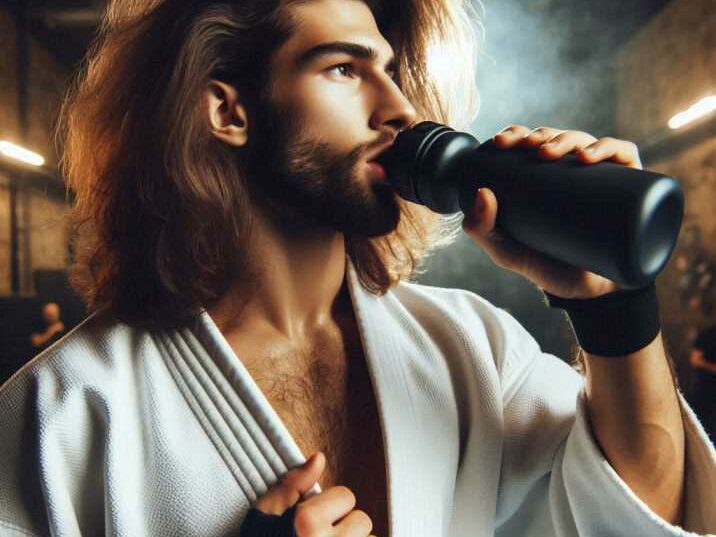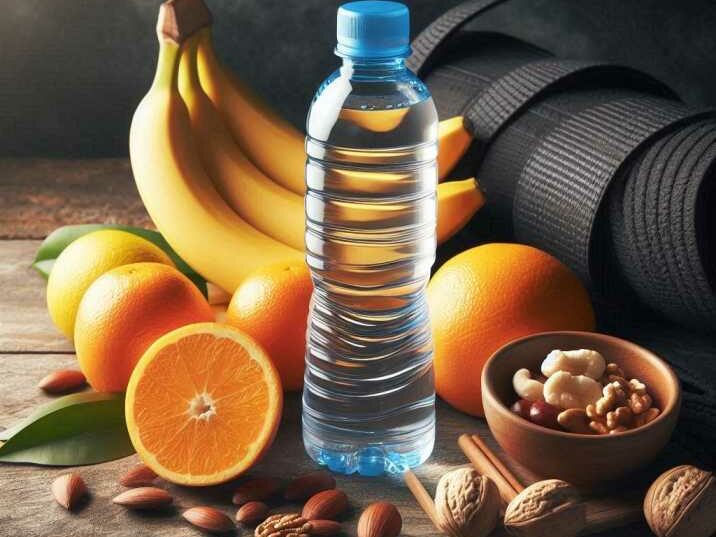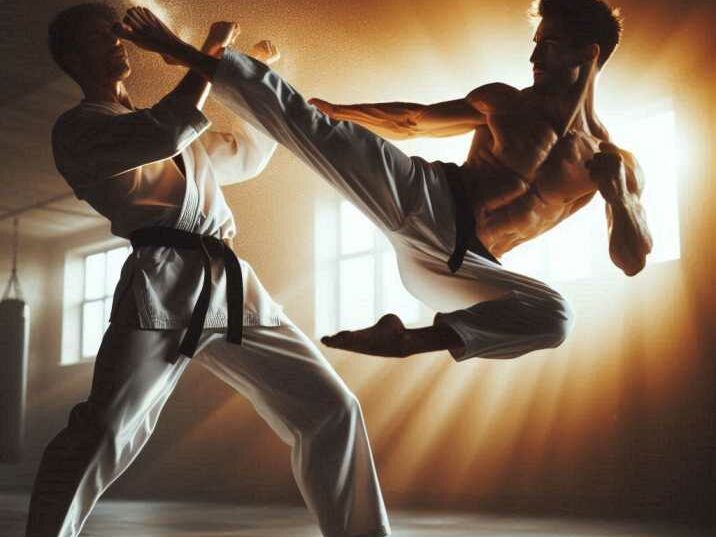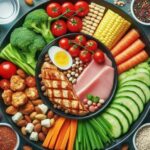Introduction:
Table of Contents
Martial arts demand rigorous physical exertion and mental focus. Whether you’re practicing Taekwondo, Karate, Jiu-Jitsu, or any other discipline, proper hydration is paramount to achieving peak performance. In this guide, we’ll explore hydration hacks tailored specifically for martial artists, ensuring you stay energized, alert, and hydrated throughout your training sessions.

Understanding Hydration Hacks for Martial Artists:
Water’s Importance in the Body:
Water is not just a simple beverage; it’s the fundamental building block of life itself. Comprising roughly 60% of our body weight, water plays a myriad of essential roles in maintaining our overall health and well-being.
- Regulating Body Temperature: One of water’s primary functions is to act as the body’s internal thermostat. Through processes like sweating and evaporation, water helps regulate body temperature, ensuring that we remain within the optimal range for physiological functions.
- Lubricating Joints: In the context of martial arts, where flexibility and agility are paramount, water serves as a natural lubricant for our joints. This lubrication reduces friction between bones and cartilage, allowing for smooth and pain-free movement during training and combat.
- Aiding in Nutrient Transportation: Water acts as a carrier for essential nutrients, facilitating their transportation to cells and tissues throughout the body. From carbohydrates and proteins to vitamins and minerals, water ensures that vital nutrients reach their destinations, nourishing our cells and fueling our activities.

Hydration and Martial Arts Performance:
Participating in martial arts sessions demands significant physical exertion, often resulting in profuse sweating and fluid loss. Maintaining proper hydration levels is critical for optimizing performance and preventing dehydration-related complications.
- Impaired Performance: Dehydration can impair both physical and cognitive performance, diminishing endurance, strength, and reaction time. This can adversely affect your ability to execute techniques effectively and may compromise your overall training progress.
- Decreased Endurance: Inadequate hydration reduces the body’s ability to sustain prolonged physical activity, leading to premature fatigue and decreased endurance. This can hinder your performance during training sessions and competitions, limiting your capacity to perform at your best.
- Increased Risk of Fatigue and Cramps: Dehydration elevates the risk of experiencing fatigue, muscle cramps, and other symptoms associated with electrolyte imbalances. These issues not only impair performance but also increase the likelihood of injuries, disrupting your training regimen and overall martial arts journey.

2. Optimal Hydration Strategies:
Ensuring proper hydration is not just about drinking water during your martial arts sessions; it’s a holistic approach that involves preparation, consistency, and post-training recovery. Let’s delve into the details of each aspect:
Pre-Hydration Preparation:
The foundation of optimal hydration is laid before you even step onto the training mat. Preparing your body adequately ensures that you start your session with optimal fluid reserves. Here’s how to do it:
- Timing is Key: Initiate hydration at least two hours before your training session begins. This gives your body ample time to absorb and distribute fluids effectively. Consider setting reminders or establishing a hydration routine to ensure you’re consistently hydrated before each session.
- Quantity Matters: Aim to consume a sufficient amount of water during the pre-hydration phase. The general guideline is to drink around 16-20 ounces of water two hours before exercise. However, individual hydration needs may vary based on factors such as body weight, sweat rate, and environmental conditions. Listen to your body and adjust your fluid intake accordingly.
- Electrolyte Balance: In addition to water, consider incorporating electrolyte-rich foods or beverages into your pre-training routine. Electrolytes, such as sodium, potassium, and magnesium, play a crucial role in maintaining fluid balance, nerve function, and muscle contractions. Opt for foods like yogurt, avocado, and leafy greens, or electrolyte-enhanced sports drinks to support hydration and optimize performance.
Hydration During Training:
Consistency is the cornerstone of effective hydration during martial arts sessions. Staying hydrated throughout your workout ensures sustained performance and minimizes the risk of dehydration-related issues. Here’s how to maintain hydration levels during training:
- Sip, Don’t Guzzle: Rather than waiting until you feel thirsty, make it a habit to sip on water consistently throughout your session. This helps maintain a steady level of hydration and prevents dehydration. Keep a water bottle within reach and take frequent breaks to hydrate, especially during intense or prolonged exercises.
- Know Your Needs: Understand your individual fluid requirements based on the intensity and duration of your training. Sweating rates can vary significantly among individuals, so it’s essential to listen to your body’s cues and adjust your fluid intake accordingly. If you’re engaging in high-intensity or endurance-based activities, consider incorporating sports drinks containing carbohydrates and electrolytes to fuel your performance and enhance hydration.
Post-Training Hydration:
Hydration doesn’t end when your training session does. Proper post-training hydration is crucial for facilitating recovery and optimizing performance in future sessions. Here’s what you need to do:
- Replenish Lost Fluids: Immediately after your workout, prioritize rehydration by consuming water or a sports drink. Aim to replace the fluids lost through sweat within 30 minutes of finishing your session. Drinking fluids with a balance of carbohydrates and electrolytes can help replenish glycogen stores, repair muscle tissue, and accelerate recovery.
- Restore Electrolyte Balance: In addition to fluids, focus on replenishing electrolytes lost during exercise. Electrolytes, such as sodium, potassium, and chloride, are essential for maintaining fluid balance, nerve function, and muscle contractions. Consuming electrolyte-rich foods or beverages, such as bananas, coconut water, and sports drinks, can help restore electrolyte balance and prevent dehydration-related complications like muscle cramps and fatigue.
3. Monitoring Hydration Levels:
Understanding the signs of dehydration is essential for maintaining optimal hydration levels during martial arts sessions. By recognizing these signs early, you can take proactive steps to address dehydration before it impacts your performance. Look out for symptoms such as:
- Thirst: Thirst is your body’s way of signaling that it needs fluids. If you feel thirsty, it’s essential to drink water or a hydrating beverage immediately.
- Dry Mouth: A dry or sticky feeling in your mouth may indicate dehydration. Keep your mouth moist by sipping water regularly during your training session.
- Fatigue: Dehydration can lead to feelings of tiredness or lethargy, making it challenging to maintain your energy levels and performance.
- Dizziness: Dehydration can cause dizziness or lightheadedness, especially during intense or prolonged exercise. If you experience dizziness, stop exercising and hydrate immediately.
- Reduced Urine Output: Monitoring your urine output can provide valuable insights into your hydration status. Dark-colored urine or infrequent urination may indicate dehydration and the need for increased fluid intake.
4. Hydration Tips for Competition Days:
Competition days require meticulous hydration planning to ensure you’re performing at your best. Here are some additional hydration tips to keep in mind:
Early and Consistent Hydration:
Start hydrating well in advance of your competition, ideally the day before. Maintain a consistent fluid intake leading up to your matches to avoid last-minute dehydration. Keep a water bottle with you at all times and sip on fluids regularly throughout the day.
Electrolyte Balance:
Incorporate electrolyte-rich foods and beverages into your pre-competition meals to maintain electrolyte balance and support hydration. Foods like bananas, oranges, and nuts are excellent sources of potassium, while sports drinks can provide a convenient way to replenish electrolytes on the go. Avoid excessive consumption of caffeine or alcohol, as these substances can increase urine output and lead to dehydration.
5. Conclusion:
Staying hydrated is essential for optimizing your martial arts performance. By implementing these hydration hacks into your training regimen, you can enhance endurance, maintain focus, and achieve your full potential in the dojo or ring.
Table of Information Hydration Strategies:
| Hydration Strategy | Details |
|---|---|
| Pre-Hydration Preparation | Consume water at least two hours before training sessions. |
| Hydration During Training | Sip on water regularly during sessions. Consider sports drinks with electrolytes. |
| Post-Training Hydration | Replace lost fluids within 30 minutes of completing your workout. |
| Signs of Dehydration | Thirst, dry mouth, fatigue, dizziness, decreased urine output. |
| Competition Day Tips | Begin hydrating the day before, consume electrolyte-rich foods, monitor hydration levels. |
FAQs:
- Q: How much water should I drink during a martial arts session? A: Aim to drink approximately 8-10 ounces of water every 20-30 minutes during your training session.
- Q: Are sports drinks better than water for hydration during martial arts? A: Sports drinks containing electrolytes can be beneficial for replenishing lost minerals during intense training sessions. However, water remains a suitable option for hydration.
- Q: Can dehydration affect my martial arts performance? A: Yes, dehydration can impair performance, decrease endurance, and increase the risk of fatigue and cramps during martial arts training.
- Q: How can I tell if I’m dehydrated during a martial arts session? A: Signs of dehydration include thirst, dry mouth, fatigue, dizziness, and decreased urine output. Pay attention to these cues and hydrate accordingly.
- Q: Should I hydrate differently on competition days? A: On competition days, hydrate early and often, and pay attention to electrolyte balance by incorporating electrolyte-rich foods into your meals.


